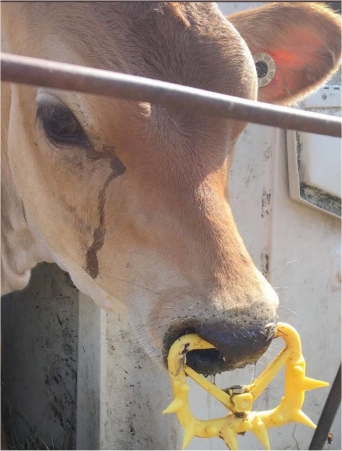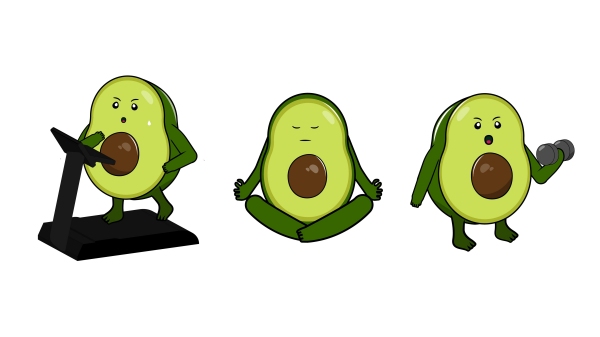
The simple answer: Yes.
The longer answer: Many animal advocates express concern and outrage at the way animals are treated in even high welfare animal farming operations and certainly there are many examples where “welfare” practices are more about expedience and productivity than the well-being of the animals. However, while we can question some practices, the larger question is, should we openly encourage and support farmers to provide good welfare for their animals or is this tacitly endorsing animal exploitation?
At the heart of this question seems to be the idea of abolitionism vs welfarism, an idea that has been expressed most strongly by animal rights advocate Gary Francione and his stance against what he terms “New Welfarism”. Welfarism is the idea that animal use is acceptable, providing the animals are well cared for. Abolitionism on the other hand is the idea that the foundational right that other animals should attract is the right not to be property (ie to be free) and hence no animal use is morally acceptable, regardless of how well cared for the animals might be.
Welfarism does not necessarily demand an end to animal use, while abolitionism does. Francione worries that by combining the two ideas, we dilute the effectiveness of campaigning for animal liberation (ie, abolition of animal using industries). Such a combination he refers to as “New Welfarism”.
New welfarism is thus an approach which advocates for improving animal welfare whilst still aiming for animal rights and abolition of animal use. Francione is critical of this ‘soft option’ and argues that to ever achieve anything the animal rights movement needs to focus only the ultimate goal of total animal liberation and nothing else.
Moreover, Francione argues that by advocating for, and supporting, better welfare practices we are in essence condoning animal use. The idea that we should think that animal use is acceptable so long as the animals are treated well is a pernicious one to be resisted at all costs. Welfarists are not commited to abolishing animal use and hence have no place within a genuine rights-based framework.
Is this a reasonable strategy? My own view is that no, it isn’t because I believe it confuses welfare with welfarism. The former is entirely consistent with a rights-based framework for our relationship with other species, the latter disregards these rights. This is because when we worry about the wellbeing of animals we are not necessarily committing to the belief that their use and exploitation is acceptable.
To explain further, it is my view that we owe other species the same basic rights as we owe human beings, whenever we can do so (or choose to). The reason for the somewhat optional stance here is because for now, such rights are not formalised at law and hence the best any of us can do is choose to act as though these rights exist.
These basic rights – the rights to be free, in control of one’s own life and not to be treated cruelly – should serve to guide us in our actions. Because these three basic rights give rise to the concept of veganism (and indeed directly underpin the definition of veganism), vegans therefore are people who behave as though other animals have these rights (ie vegans seek to exclude – as far as is possible and practicable – all forms of exploitation of, and cruelty to, animals).
How does this guide us in relation to animal welfare?
Generally speaking, vegans will not support animal-using industries when they can choose otherwise because these industries typically violate all three basic rights. This lack of support usually takes the form of not buying products from animal-using industries so as to remove the stimulus for continued production.
If everyone followed this strategy, then clearly the animal-using industries would cease because economic support is withdrawn. However, for now this is not stopping animals being bred into the system and so there are animals in these industries whose most important basic rights have been violated. The only remaining right that people can help protect is their right not to be treated cruelly.
Therefore, while there are farmed animals, vegans seem to remain under a duty to advocate for better welfare in order to be consistent with the aim to prevent cruelty. By advocating for better welfare one is not endorsing the use of animals in animal-using industries but rather seeking to minimise violations of living animals’ rights (ie the right not to be treated cruelly). Of course, as noted above vegans are still not going to buy products from these industries, no matter how good the welfare.
We can see therefore that these industries would not continue just because these same non-consumers support their welfare efforts. On the other hand, a genuine welfarist – who argues that animal use is fine so long as welfare is fine – would continue to stimulate production with their economic support.
On these grounds, I think vegans should advocate for farmers to maximise welfare. In fact, some typical practices that vegans disapprove of should be endorsed rather than criticised. Let me offer two examples to which vegans/activists frequently object.
The first is AI (Artificial Insemination) in dairy farming. Critics regularly refer to this using highly perjorative language, frequently using human sensibilities to describe this procedure. It is not uncommon to see advocates/activists talking about “rape”, “rape racks”, “fisting” and so on in order to cast the famers who use AI as something akin to sexual offenders. Clearly the aim is to arouse a negative sentiment in the observer such that they might be willing to consider abandoning dairy products.
I can understand the reasoning but given the actual benefits of AI in this context, it seems unfair to criticise farmers for doing this. Worse, it encourages anti-vegan objectors to ridicule activists for conflating human moral concerns with animals (and the consequent risk that activists are regarded as minimising concerns for human issues).
Instead I suggest that to be consistent with our duty to respect the rights of other animals, surely we should want farmers to take whatever steps are necessary to ensure the overal wellbeing of their animals, once they exist? In the case of dairy AI, the benefits include minmising the risk to the cow of being injured during mating, the use of sexed semen to minimise the problem of bobby calves, while also helping to reduce the risk of disease transmission to the calf, ensure adequate colostrum and feed intake, and to simplify disease detection.
Another example is the use of studded nose-rings in calves to prevent them suckling. Activists point to this as particularly inhumane and on the surface, it does look that way. Imagine hooking a pointed object into a calf’s nose to prevent it suckling from its mother? This seems the height of cruelty. Yet is it really?

As I understand it, these are mainly used on beef farms where calves do remain with their mothers until weaning. On dairy farms calves are typically separated from their mothers very early on (and this itself is a welfare measure).
The reason farmers use these rings is because calves don’t wean naturally on a farm. They will continue to suckle, which means the mother will continue to produce milk. Just as humans can physically produce milk for 5 or more years if a mother continues to feed her toddler and preschool aged child, a cow will also continue to produce while being suckled – but often at the detriment of her own health.
In the wild, the young would either be pushed out of the herd if male (to go find its own herd), or if female impregnated by the dominant male! On a farm, there are three options for weaning: complete separation while young (as in a dairy), separation at weaning age (between 5 and 12 months depending on the farm process), or using a device like this to allow the mother and calf to stay together but allow weaning.
While it might seem that the nose ring is the crueler of the three options, it’s actually the option that causes the least stress to both mother and calf. Weaning by separation causes a lot more stress on both in the short term but is completed much quicker. But it also requires a bigger land opportunity. You can’t just move either mother or calf into a different paddock if they are still in eyesight or earshot of each other as they will break through fences to get back to each other.
In the wild, nature takes care of itself through harsh measures. In domestic situations, humans must intervene and simulate the conditions that would occur in the wild. The nose ring (which is plastic and is a squeeze fit rather than a pierced fit) pemits a safe and efective way to wean the calf while allowing both to remain in contact.
In closing, let me hasten to add I am not proposing that vegans and animal rights activists advocate for welfare on the grounds that this make animal use perfectly fine. On the contrary, we should wish to prevent animal farming whenever that is possible – good welfare does not mean that we have the right to indiscriminate use of other animals. Rather, I am suggesting that to respect the rights of animals that do exist on farms, we should support policies and standards that aim to improve their welfare. When such conditions fall short, we should call attention to these failings and seek better.
